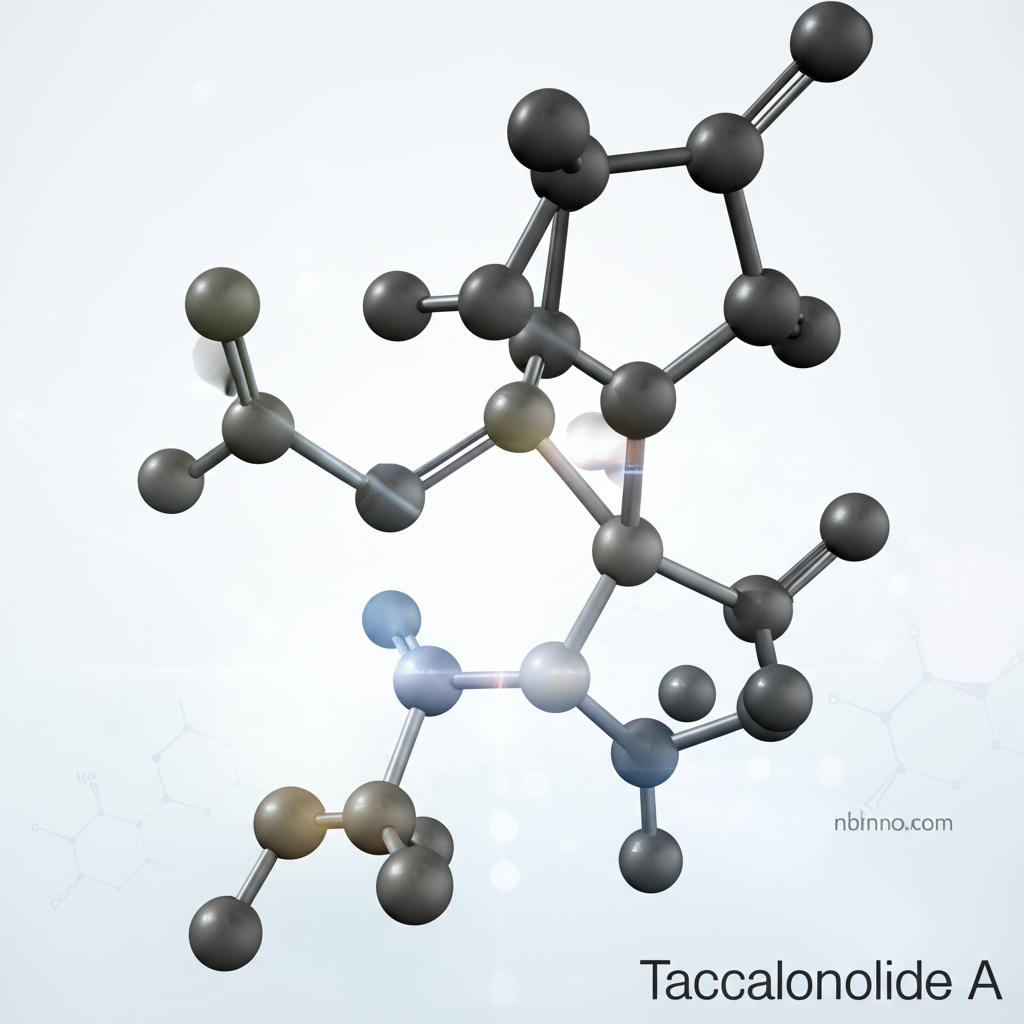Taccalonolide A: A Potent Microtubule Stabilizer for Cancer Research and Therapeutic Development
Discover the natural power of a microtubule stabilizer with profound anticancer potential.
Get a Quote & SampleProduct Core Value

Taccalonolide A
Taccalonolide A is a naturally derived compound that functions as a potent microtubule stabilizer. It exerts its effects by binding irreversibly to microtubules, promoting tubulin polymerization and stabilizing microtubule structures. This action disrupts the essential dynamic instability required for proper mitotic spindle function during cell division, ultimately leading to cell cycle arrest and apoptosis.
- Exploring the microtubule stabilizing agent mechanism of action for novel cancer treatments. This compound offers a unique approach to disrupting cancer cell proliferation.
- Investigating anticancer natural products for enhanced therapeutic strategies. Taccalonolide A represents a significant advancement in the field of natural product drug discovery.
- Developing drug resistant cancer therapy solutions. Its efficacy against multidrug-resistant cancer cell lines highlights its potential to overcome common treatment challenges.
- Understanding tubulin polymerization inhibitors and their role in oncology. This research contributes to a deeper understanding of how to target cancer cells at a molecular level.
Advantages Delivered
Targeted Cancer Cell Elimination
Taccalonolide A demonstrates high potency antiproliferative activity against cancer cells, offering a precise mechanism for eliminating malignant cells.
Overcoming Drug Resistance
Its unique mechanism of action makes it a promising candidate for overcoming multidrug resistance, a common hurdle in cancer treatment.
Natural Product Origin
Derived from plants, Taccalonolide A offers a natural alternative with a distinct biochemical profile for drug development.
Key Applications
Oncology Research
Studying the effects of Taccalonolide A as a microtubule stabilizer and its role in inducing apoptosis provides critical insights for cancer drug discovery.
Pharmacological Studies
Investigating its mechanism of action and potential for drug resistant cancer therapy is a key focus in pharmacological research.
Drug Development
As a potential therapeutic agent, Taccalonolide A is being explored for its cytotoxic and antimalarial activities, paving the way for new treatments.
Cell Biology Research
Understanding how compounds like Taccalonolide A affect tubulin polymerization offers valuable data for fundamental cell biology studies.
